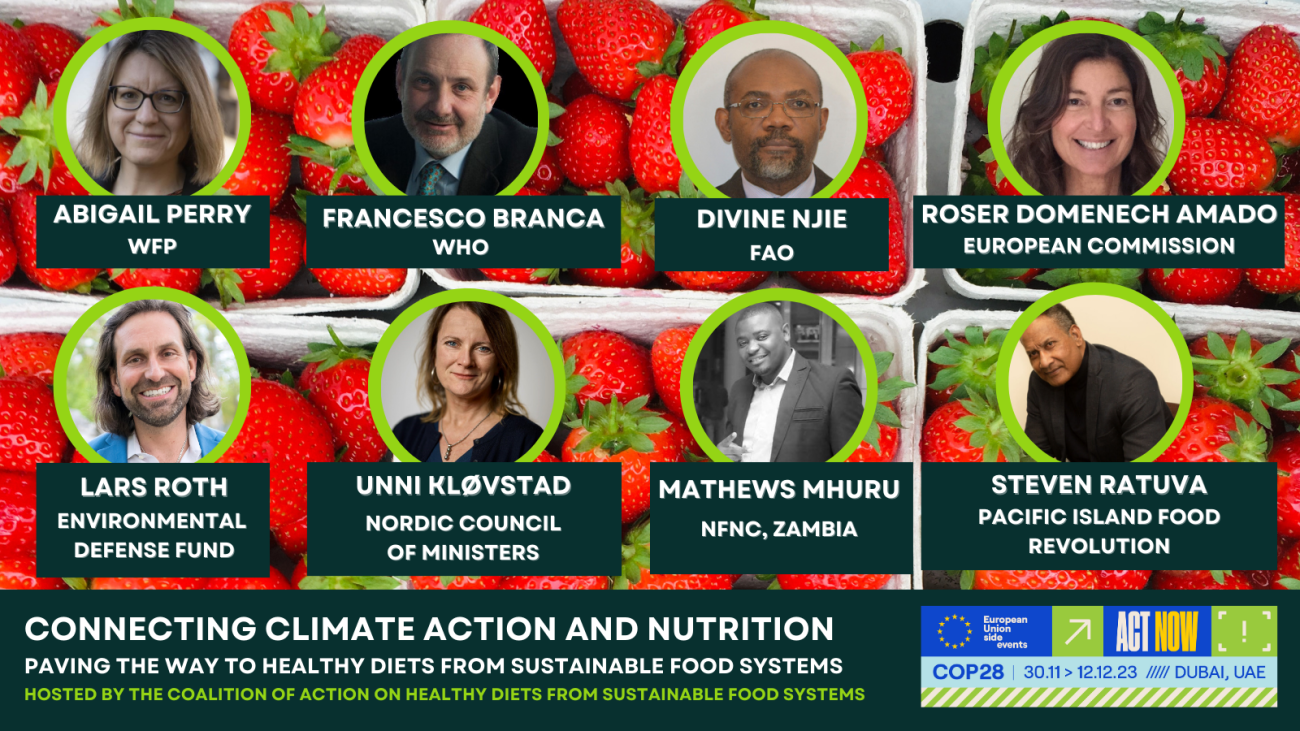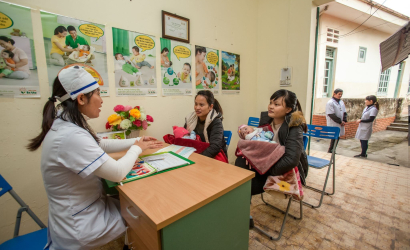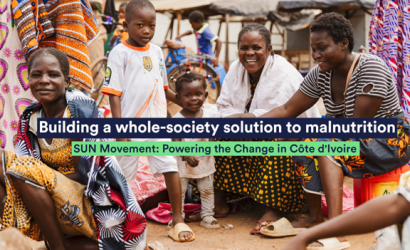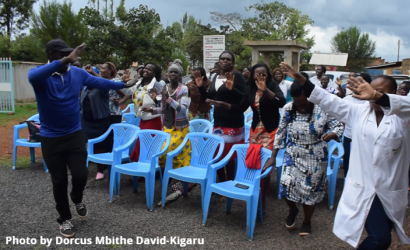During the 28th Session of the Conference of Parties (COP28) the Coalition of Action on Healthy Diets from Sustainable Food Systems (HDSFS Coalition) hosted a special event ‘Connecting climate action and nutrition: paving the way to healthy diets from sustainable food systems’ on the European Union’s virtual Pavilion. As shared by the Event Moderator, Abigail Perry- Director of WFP’s Nutrition Division “This event by the Coalition of Action on Healthy Diets from Sustainable Food Systems for Children and All, which is made up of UN agencies, civil society organisations, researchers, 18 members states as well as the EU, hopes to spark ideas on how we can co-create innovative and integrated actions that positively impact on climate and nutrition”. The event also contributed to wider advocacy efforts for nutrition and climate at COP28.
The event brought together a multitude of actors under the HDSFS Coalition to showcase the huge potential of actions to ensure healthy diets in contributing to the reduction of malnutrition in all its forms by promoting healthy lives, substantially reducing the health burden of noncommunicable diseases, and improving maternal and child health. As well as the substantial contribution of healthy diets, and improved health of populations, on mitigating the environmental footprint and climate impact of food and health systems.
The excellent line up of speakers demonstrated the broad commitment to achieving this vision, as well as showcasing concrete interventions and strategies to deliver healthy diets from sustainable food systems- supporting improved nutrition as well as climate change adaptation and mitigation. Examples included the European Commission's farm to fork strategy, One Health approaches, food based dietary guidelines (such as the Nordic Council’s New Nutrition Recommendations), public food procurement policies, responsible marketing, tax incentives, reducing food loss and waste, diversifying food production and the protection, promotion and support for indigenous and traditional food systems.
You can find a full recording here, as well as some key messages and quotes from panelists below.

Key Messages
- Fully functioning sustainable food systems increase the yield and availability of nutritious foods, reduce food loss and waste, enable healthy diets for all and reduce all forms of malnutrition both today and in the future.
- Public policies and strategies are required to improve the availability and price of foods that promote healthy and sustainable diets through Food Based Dietary Guidelines, public food procurement, and fiscal policies and consumers need to be empowered to make informed, healthy and sustainable food choices through consumer information, restrictions of marketing of unhealthy foods and beverages.
- The food industry and retail sector should show the way by increasing the availability and affordability of healthy, sustainable food options to reduce the overall environmental footprint of our food system.
- Collaborative and cohesive action is crucial to achieve impactful, sustainable shifts in our food systems to deliver healthy diets from sustainable food systems for children and all.
“animal source foods contribute to healthy diets, particularly in the first years of life. However, excess consumption of red meat is associated to increased risk of cardiovascular disease and cancer. Food system transformation needs to address the equity issues. In upper middle income countries consumption levels are high and a small reduction of consumption would lead to substantial health benefits, let alone the benefits on greenhouse gas emissions and the use of antibiotics in intensive livestock farming. In low income countries increased consumption would be beneficial...”
…. “An increased role of plant based foods in our diets to ensure our consumption is in line with nutrition recommendations would generally be more sustainable environmentally… shifting diet is not only a health imperative, but also an environmental opportunity…”
…. “the increasing overreliance of our food systems on a limited number of products present challenges in the context of a rapidly changing climate... homogenized food products reduce nutritional diversity...we at EDF have pioneered work to expand the worlds knowledge on the different nutritional content of products and management options available for resilience to inform food systems decision makers…”
…. “For the first time ever the Nordic Council’s Nutrition Recommendations integrate environmental aspects. Food groups are assessed first from a health perspective, and then from an environmental aspect… compiled through a very inclusive and transparent process, engaging experts and researchers, with broad based public consultation… the recommendations are relevant not only to Nordic countries, but of universal relevance…”
…. “Our agrifood systems are not performing optimally… through food loss and waste we can simultaneously contribute to the social, environmental and economic sustainability of our food systems as a triple win for people, planet and prosperity at the same time… contributing to achieve all SDG’s...”
".... unfortunately some private sector actions are making our work in promoting healthy diets from sustainable food systems more difficult … we have recently had private sector actors in to discuss why they are using nutrition and healthy diets as a marketing strategy to market unhealthy foods.. we are making a lot of efforts at country level to address that”
…”The Pacific Food Revolution is trying to recapture the connection between people and traditional food systems- ensuring food is environmentally friendly, culturally enriching and supports health- countering the noodle and cola culture that has emerged in the Pacific over the past few decades which has led to very bad issues of diabetes…”



